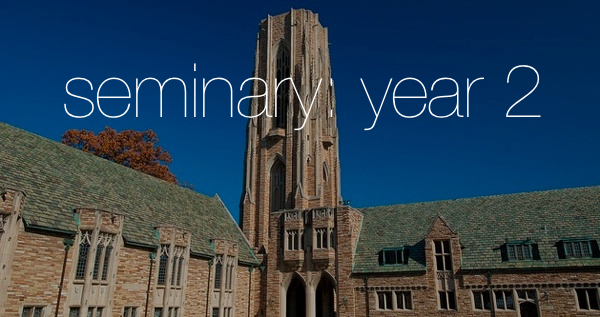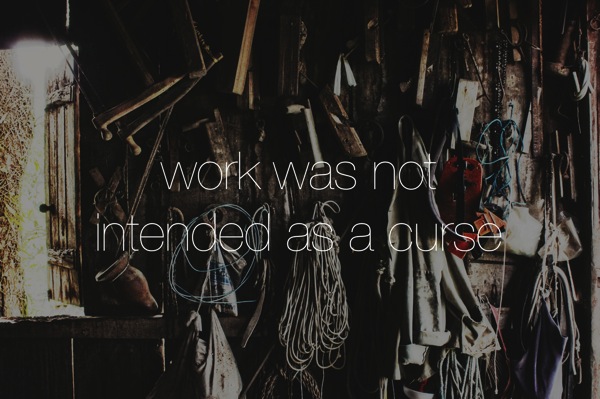I recently heard someone suggest that we shouldn’t call little girls pretty because it perpetuates a problem where little girls see their own worth based solely on their waist line.
 Everybody loves free ideas and resources. And if you are in any creative ministry position, you are probably often looking for inspiration or freebies to help you do your work. As a ministry, we are regularly producing great content for our sermon series. The creative process to developing these is one of the areas that I am most passionate. I love working with our team as we brainstorm ideas and then helping move ideas forward into a finished product.
Everybody loves free ideas and resources. And if you are in any creative ministry position, you are probably often looking for inspiration or freebies to help you do your work. As a ministry, we are regularly producing great content for our sermon series. The creative process to developing these is one of the areas that I am most passionate. I love working with our team as we brainstorm ideas and then helping move ideas forward into a finished product.
Feel free to use these ideas to inspire your own ideas or use the supplied media and replicate the series yourself. The only thing we ask is that you don’t sell our original content as your own. Also please note, that occasionally some of our series images heavily rely on stock images; in those case you must purchase the original source image in order to have legal permission to use the image.
Truth be Told

Series Description: Everyday there are so many different messages that we’re being told. Some of the messages we like, others we don’t. But the most important ones are the ones that are true, even if they’re hard to hear. In the book of Romans, the Apostle Paul tells us a very important message. The message is hard to hear, but it’s true. It’s a message that reminds us that we need a Savior, and that’s exactly what God has given us.
Note: In order to have permission to use this graphic for your sermon series, you must download the appropriate size image from Lightstock. Get this image here. If you purchased the graphic assets and want the full size image with the text, just let me know and I’ll get it to you.
Waiting for Christmas

Series Description: It seems like every year the Christmas season starts earlier and earlier. Commercials, retailers, and radio stations try to remind us that Christmas is coming. The stress that comes with the anticipation arrives earlier too. Will we get the house cleaned? Will the shopping be done in time? Will there be family drama? As we wait for Christmas, it is easy to focus on what we wait for. . . the parties, the decorating, the bargains, and the gifts. But it’s important to remember who we are waiting for. We’re waiting for the King who came as a baby boy. And this king is no ordinary king. . . he’s a king who serves, a king who saves, and a king who loves.
We also made an awesome bumper video to go along with the series.
[tentblogger-vimeo 80396990]
 When we are little we are asked, “What do you want to be when you grow up?” And rightfully so, we are encouraged in whatever that might be, whether that be a dream to become a famous movie star, a successful athlete, and entrepreneur, or a police officer.
When we are little we are asked, “What do you want to be when you grow up?” And rightfully so, we are encouraged in whatever that might be, whether that be a dream to become a famous movie star, a successful athlete, and entrepreneur, or a police officer.
As kids, we are told, “You can be whatever you want when you grow up.”
But is this really true?
I’m not suggesting that we don’t encourage dreaming about being anything imaginable, but it’s not as true as it might seem. In some sense, the doors are wide open. When you are little, nothing is off limits for your dreams. But is it because the options are really limitless?
If you have no gifts or abilities in engineering, you probably can’t be an engineer.
If you don’t know how to play an instrument, you can’t be a musician.
If you can’t dribble a basketball, you can’t play in the NBA.
If you don't have any patience for junior high students, you can’t teach junior high students.
If you have no competency in budgeting, you probably won’t be a Chief Financial Officer.
You can’t really be anything you want to be. But you can try anything in the pursuit to discover your gifts. I’m not going to suggest that we stop telling kids they can be whatever they want. That statement for a child is more about permission to dream big and try anything. The exploration and imagination of possible future jobs is helpful and important.
But eventually we need to face the reality that we can’t be anything.
The problem for many of us is not that we were told that we could be anything we want to be. But we still think that and ignore the unique ways that God has gifted us and created us.
Realizing that you can’t be anything may sound like bad news, but I would suggest that in realizing that you were not given every gift you are freed to do the things that you do best or are needed to support your family.
You can be anything that God calls you to be.
Because when God calls you be something, he gifts you with what is necessary to be that thing and gives you the opportunities to fulfill that calling.
The temptation for many people, especially when they find themselves in college preparing for a future career or when they are in a job they dislike, is to ignore the present while dreaming about the future. God may certainly be training and preparing you for a future calling, this is an important part of schooling.
But school or an unsatisfying job is not a “lesser calling.” God calls you to be a student. He calls you to study, to work, to serve on your campus, to be a missionary, and to simply love your neighbors. This might be your calling at this very moment while God is also preparing you for another calling that you have not yet discovered.
Perhaps you have a job that makes you want to pull out your hair, but for the sake of your family you have to keep working and cannot pursue something else. Don’t ignore that your job is still a calling from God (while not necessarily a forever calling). It allows you to love and care for your family. For many people, the 9 to 5 grind is less about passionately using their gifts and more about providing for their family. This too is a sacred, holy calling that shouldn’t be ignored.
Learn and discover your gifts for the sake of using those in your callings. God has gifted you to be the person he created you to be and to do the work that he has prepared for you to do. You might not have any ability to be a professional athlete or to run a fortune 500 company, but you are perfectly wired for the work that God has called you to.
 We live in a post-Christian, pluralistic world. We have atheist buddhists, catholic hindus, and agnostic muslims. Our world is one of smorgasbord religion. A friend of mine recently spoke at a conference about this very topic and pointed out that our world has brought about the first ever chur-mosq-agogue.
We live in a post-Christian, pluralistic world. We have atheist buddhists, catholic hindus, and agnostic muslims. Our world is one of smorgasbord religion. A friend of mine recently spoke at a conference about this very topic and pointed out that our world has brought about the first ever chur-mosq-agogue.
What is that?
How in the world is somebody Christian, Muslim, and Jewish at the same time? But this is the world we live in. In our neighborhoods, workplaces, and schools people are picking and choosing from the buffet of spirituality and figuring out their own thing.
Being in a post-Christian, pluralistic world means that we must understand that our culture is not shaped by the same values that many of us hold to as Christians. This means that our culture may be interested in spirituality but have some difficulty with the idea of an objective truth. As missionaries the message we have does not change, but the world that we go into is much different than it was even a generation ago.
Katy Perry resonates with this culture when she suggests:
“I'm not Buddhist, I'm not Hindu, I'm not Christian, but I still feel like I have a deep connection with God. I pray all the time—for self-control, for humility. There's a lot of gratitude in it. Just saying 'thank you' sometimes is better than asking for things.” - Katy Perry January 2013 Cover Story - Marie Claire
Our culture ultimately worships at the altar of self. They choose what works for them, when it works for them, and how it works for them. And because of this you get Catholics practicing a New Age mysticism, who are a little bit agnostic, but also believe in karma and re-incarnation.
It’s about whatever works for me.
This isn’t really completely foreign to the Scriptures; consider the mission that Paul has at Mars Hill.
“Men of Athens, I perceive that in every way you are very religious. For as I passed along and observed the objects of your worship, I found also an altar with this inscription, ‘To the unknown god.’ What therefore you worship as unknown, this I proclaim to you. - Acts 17:22-23
They are very spiritual and they are looking for something but they don't even realize what it is.
Doesn’t that describe our world? Our world is filled with people completely open to spirituality and the supernatural. And people are looking in all different places, religions, practices, and ideas for something that will help.
We live in a world full of people pursuing and building altars to all kinds of different gods. Some are actually connected to specific religions, others are simply a pursuit of wealth or fame. Both of which are often about worshipping one’s self.
And Paul says, “Let me tell you about the God you don’t know yet.”
And then he proclaims the hope of the Gospel. He proclaims the God who has made them his children. He proclaims the Good News of Jesus. And these spiritual, religious people who don’t know Jesus all of the sudden become Jesus followers. They didn't know what they were looking for and then Paul showed them exactly what was missing from their lives. The spiritual but not religious people all around us in our world are looking for Christ, they just don’t know it yet.
 Change often starts in the fringes with an oddball group that doesn’t quite fit with everybody else. It starts with a passion and an idealism that believes things can be better than they currently are.
Change often starts in the fringes with an oddball group that doesn’t quite fit with everybody else. It starts with a passion and an idealism that believes things can be better than they currently are.
The Reformation began with a theological misfit on the fringes who believed that the Church had drifted away from the Gospel. Martin Luther began a movement with passion and idealism that believed the Church could actually be reformed. He was crazy enough to believe that the Gospel was not about works but about grace. And he was crazy enough to believe that it wasn’t just the priests that did sacred work, but all believers.
We are in a day that needs these kind of crazy reformers. We need a group of crazy ones who are crazy enough to believe that the Gospel still does its work. We need a group of crazy ones who are crazy enough to believe that God calls everyone of us to bring the Gospel into our communities the context of our ordinary, everyday lives.
We need a movement of reformers who believe that things can be better than the way they currently are. The crazy ones who actually believe that because of the Gospel, we are freed to love our neighbor with no strings attached. A group that embraces vocation; an understanding that God is hidden in us doing his work in the world as we serve our neighbors in our homes, our communities, and our churches.
If we want things to be the way they currently are, we should keep doing exactly what we are currently doing. But if we want things in our world and in the Church to be different, something must change.
Steve Jobs once said,
“Here's to the crazy ones. The misfits. The rebels. The troublemakers. The round pegs in the square holes. The ones who see things differently. They're not fond of rules. And they have no respect for the status quo. You can quote them, disagree with them, glorify or vilify them. About the only thing you can't do is ignore them. Because they change things. They push the human race forward. And while some may see them as the crazy ones, we see genius. Because the people who are crazy enough to think they can change the world, are the ones who do.”
What would happen if a group of misfits, rebels and round pegs aligned around a desire to bring us back to the pure Gospel? What would happen if a group of reformers got together and pushed forward into this new day and culture with the message that has been handed down to us from the scriptures?
The Modern Reformation
The Crazy Ones go backwards.
The crazy ones in today’s world will be the ones that go back.
They will be the ones that go back to an ancient truth and believe that this ancient text is a message of hope for all the world. In a world that is quick to throw out the Word, we need a recovery and love for the Word. In Churches that are quick to throw out grace for a list of dos and don'ts, we need a recovery of the Gospel that says “done.” And in our Churches, that have ignored the doctrine of vocation, we need a recovery of the understanding that God calls all of us to our homes, neighborhoods, churches, and workplaces to serve our neighbor and share the Gospel.
The crazy ones won’t be the ones that are saying something new, but they will be the ones that are saying ancient truths in new ways.
The Crazy Ones go forward.
Not only do the reformers go back, but they go forward.
In order for the first Reformation to take place, it was largely shaped by the technology of the day. It was shaped by the printing press. Today, the changes (both good and bad) that take place in the Church are shaped by the new printing press - it is shaped by blogs and podcasts and social media.
The Reformation brought the ancient truth of God to the people of the cities in a language they could understand. In our day as we recover what has often been lost in broader Christianity and in our culture, we will need to bring the message of the Gospel in the language of the people.
We will need to translate God’s word into the language of people we want to reach. The way we sound and how it looks when we talk might change, but the message stays the same. When Luther introduced the Reformation, people fought against it. They feared his radical ideas like giving the Word to ordinary people or introducing music into the Mass.
But whatever Luther did, he did because he was crazy enough to believe that it actually served the message of the Gospel.
https://www.youtube.com/watch?v=8rwsuXHA7RA
The Gospel is the message of the Reformation. And it will be the message of the new Reformation. Perhaps it’s crazy to believe that this ancient message is the message that our world needs today? Maybe it’s crazy to think that the message that God can use ordinary people like us to be the mouthpiece of God in this world.
And maybe it’s crazy to think that a story about a guy who was given the death penalty for his scandalous message of grace is the hope the world needs. Paul himself said it’s a little bit crazy in 1 Corinthians 1:18 when he wrote, "For the message of the cross is foolishness to those who are perishing, but to us who are being saved it is the power of God."
So for my fellow crazy ones, in the words of Steve Jobs, “Stay hungry. Stay foolish.”
 Two men. Two different jobs. Two different offerings. The story of Cain and Abel is the story of the first dysfunctional family; two brothers come before God making offerings and find God responding in two very different ways.
Two men. Two different jobs. Two different offerings. The story of Cain and Abel is the story of the first dysfunctional family; two brothers come before God making offerings and find God responding in two very different ways.
Now Adam knew Eve his wife, and she conceived and bore Cain, saying, “I have gotten a man with the help of the Lord.” And again, she bore his brother Abel. Now Abel was a keeper of sheep, and Cain a worker of the ground. In the course of time Cain brought to the Lord an offering of the fruit of the ground, and Abel also brought of the firstborn of his flock and of their fat portions. And the Lord had regard for Abel and his offering, but for Cain and his offering he had no regard. So Cain was very angry, and his face fell. The Lord said to Cain, “Why are you angry, and why has your face fallen? If you do well, will you not be accepted? And if you do not do well, sin is crouching at the door. Its desire is for you, but you must rule over it.” Cain spoke to Abel his brother. And when they were in the field, Cain rose up against his brother Abel and killed him.” - Genesis 4:1-9
At first glance, we can read this and think that perhaps something’s going on with the offerings. After all, Cain and Abel did not bring the same offerings. Did Cain bring the wrong type of offering and Abel did it right? Was this a story about fruit versus livestock?
While it might appear that this might be the case, this is not a story about fruit or livestock, this is a story about worship. It is a story about two worshippers who worship two very different gods.
Church of Cain vs. Church of Abel
In many ways, Cain and Abel look a lot alike. Martin Luther actually referred to them both as a picture of two churches.
There are two churches that are worshipping and making offerings. On the surface, the Church of Cain and the Church of Abel look very similar. They both make offerings, they both have sacrifices, they both require faith, and they both are worshipping. But when the Church of Cain does the same things that the Church of Abel does, they don’t mean the same things.
Cain can do the same things and say the same words but it is clear that he means something different.
Cain worships, but his worship is not the same as Abel’s. Can has faith, it’s just in his own offering and not in God. Cain approaches God as though he actually has something to offer. This is why he gets upset when God doesn’t look favorably at him; he thought he had something to offer.
Abel on the other hand worships God with nothing to give. Abel doesn’t think that God owes him anything. Abel’s faith is not in what he has to offer, but in what God has to offer. Abel trusts in the radical message of grace; he trust that God’s favor is completely unmerited.
And this pisses off Cain.
Because Cain thinks he deserves God’s favor and he doesn’t get it. And Cain thinks Abel doesn’t deserve it and Abel gets it. The Church of Cain is not okay with the good news being shown to the Church of Abel.
The theologian Michael Horton said it this way when he said, “The doctrine of grace and the theology of the cross will always result in the wounded getting healed and the self-righteous getting angry.”
This is what happens in the story of Cain and Abel and this is what happens in the life of Jesus. Jesus comes preaching this message of grace. And this message is so radical and scandalous that Jesus even starts preaching it to sinful people like tax collectors and prostitutes.
And the religious people get ticked.
Because that’s what the self-righteous people do. They get angry when the see God’s grace extend to certain groups of people. When you and I believe that it is up to us to earn God’s favor, we will get angered by the scandalous lengths that God will go to in order to love everyone.
 I have officially completed my first year of seminary. Last fall, I officially jumped head first into this new journey of having my nights filled with writing papers, listening to lectures, and reading books by dead guys. And now, after one year of hard work, I’m still at it.
I have officially completed my first year of seminary. Last fall, I officially jumped head first into this new journey of having my nights filled with writing papers, listening to lectures, and reading books by dead guys. And now, after one year of hard work, I’m still at it.
Here are some random thoughts after one year of work.
- I’m glad that I like to read books by dead guys. Because it helps with the reading assignments.
- Reading isn’t nearly as fun when it is mandatory.
- School is school. Even when it’s learning about stuff you like. There are classes that I enjoy. And classes that I dread.
- I have learned a ton. It’s been a lot of work.
- Since I’m a Vicar (like a Pastor-intern), I get to preach regularly. And that is by far my favorite thing I get to do. I love preaching and want to keep doing it as much as my church lets me.
- My best class and also my hardest class was called the Master Narrative and was taught by Dr. Charles Arand. That man was is a genius.
- I’ve been on campus this week and I’m amazed at the knowledge and insight of the theologians we have in the LCMS. These professors are some great thinkers and have me greatly encouraged as I think about the mission and ministry of our congregations.
- I’m only a little over a year away from ordination. That’s awesome.
- I’m incredibly blessed to be at church that supports me in this journey. And even more, to have a wife that puts up with me staying up all night to do homework.
One year down. Three to go.
 If you listen to the radio for a while, you’ll probably notice that every song kind of sounds the same. Or if you watch movies, you’ll often start to notice how frequently movies are just re-makes of something else. And even the original movies still all use the same basic story structures, such as the Hero’s Journey. The same thing happens with technology. Microsoft makes something. Google makes their version. And Apple comes along and makes there version a little bit better than the others.
If you listen to the radio for a while, you’ll probably notice that every song kind of sounds the same. Or if you watch movies, you’ll often start to notice how frequently movies are just re-makes of something else. And even the original movies still all use the same basic story structures, such as the Hero’s Journey. The same thing happens with technology. Microsoft makes something. Google makes their version. And Apple comes along and makes there version a little bit better than the others.
[tentblogger-youtube oOlDewpCfZQ] Everybody is copying.
Solomon said it himself when he wrote, “There is nothing new under the sun.” Whether we are talking about music, books, a sermon series, or blog posts, there really aren’t any completely original ideas. All of our ideas come from someone else who got their idea from someone else who got their idea from someone else.
We all desire innovation, but we often forget that the innovators are also copycats.
Copying is usually frowned upon, but I think that as artist-theologians many of us would benefit from learning to copy well. When we learn to copy appropriately, we learn from the positives of the artists around us and make that our own. We don’t become carbon-copies of the people we copy but we become hybrids of all the people we imitate and when combined with our own personality and style, it becomes something completely new.
Listen.
Find other artists, preachers, storytellers, and writers. Read their writing. Study how they say what they say. When you find one that you love, listen to everything and find out what they read and listen to.
Imitate.
It’s okay to copy bits and pieces of the people you love. Copy what you love while still being yourself. Years ago, I was overly concerned with sounding like the preachers I liked, but it was recommended to me that I shouldn’t worry about it.
Why?
Because that preacher I loved, he sounds like the preachers he listened to. And his preachers sound like their preachers. And so they were all shaped by the ones who went before them and help form the preacher himself.
Make it your own.
The goal in copying isn’t to be identical to any one artist, but to learn the skills and apply those to yourself.
Austin Kleon suggests, "“Start copying what you love. Copy copy copy copy. At the end of the copy you will find your self.” Copy the preachers, writers, and artists you love. And in the end you may be influenced by those artists, but you will still be you.
You copy some. You discard others. And you learn your own voice.
 Tacos are awesome. A great deal on a new pair of shoes is awesome. Blog posts are awesome. Saving money on your car insurance, awesome. I recently watched a TED talk by Jill Shargaa suggesting that we “put the ‘awe’ back in ‘awesome.’
Tacos are awesome. A great deal on a new pair of shoes is awesome. Blog posts are awesome. Saving money on your car insurance, awesome. I recently watched a TED talk by Jill Shargaa suggesting that we “put the ‘awe’ back in ‘awesome.’
[tentblogger-youtube uSD6RlqHwOk]
Jill said, “When you use the word awesome to describe the most mundane of things, you are taking away the very power of the word.”
We far too easily miss the meaning of words like awe and awesome. Awesome is defined as “extremely impressive or daunting, inspiring great admiration, or awe-inspiring.” Do our tacos really inspire awe? Does that discount really inspire great admiration?
The word awe is defined as “a feeling of reverential respect mixed with fear or wonder.”
Jill Shargaa is on to something. We use the word awesome so flippantly that we don’t even realize what we are saying. But I actually think that while we don’t realize what we are saying when we throw around the word awesome, we are actually speaking to a great theological truth.
In the words of Emmet, the prophetic, ordinary Lego, “Everything is awesome!”
The ordinary things of this world might be too often described as awesome. But at the same time, there is something awe-inspiring about the complexity of the simple things in this world. Take for example that sandwich that you got from Jimmy John’s.
Is it really awesome?
The sandwich alone probably not. But what about all that went into it. Someone grew all the ingredients, somebody baked the bread. Some business person years ago started a franchise that would grow into what Jimmy John’s is today. We could go on… the sandwich alone might not be awe-inspiring. But the way God worked in order to make that sandwich a reality in your life might in fact be awesome.
The Rabbi Abraham Joshua Heschel said, "The insights of wonder must be constantly kept alive. Since there is a need for daily wonder, there is a need for daily worship.”
Everything is awesome.
And as we are inspired by the awe and wonder of the world around us, we are driven to worship the one who created it. From the the oddities like tacos and discounts on clothes to the truly magnificent things like a sunset or the Grand Canyon or seeing your kid take their first steps, they point us to the one who gives us every good gift.
It could be easy to get frustrated at how commonly we use the word awesome. And maybe it’s even over-used. But maybe, the people who use it all the time are onto something. And the rest of us just haven’t been looking close enough. Maybe they see something that we haven’t.
Photo Credit: Sunfox
I’m no expert in building houses, but in my limited knowledge of house building I know that the beginning of the building process is very unsexy.
 Do you ever have one of those days? Those days were work just seems to drag on. The day where the TPS reports are killing you and your sick of being told you have a “case of the mondays.” I’m not sure there is such a thing as a job where you don’t have those days.
Do you ever have one of those days? Those days were work just seems to drag on. The day where the TPS reports are killing you and your sick of being told you have a “case of the mondays.” I’m not sure there is such a thing as a job where you don’t have those days.
Because work is hard.
Work is hard because we often have bosses that are difficult to deal with. Or co-workers we can’t stand. Maybe we have a deadline that is fast-approaching. Or maybe even clients that have unrealistic expectations.
Work is tiring and exhausting. And not only that but for many of us, work follows us home. And this happens with all work - even the most appealing, perfect, dream-jobs.
But there’s an important reminder for all of us in the midst of these days. Work was never intended to be a curse. Work was actually intended to be a gift for man. A calling for man to fulfill in paradise.
“The book of Genesis leaves us with a striking truth-work was part of paradise.” - Tim Keller, Every Good Endeavor
But then sin enters the picture. Sin is the reason that both our perfect jobs and our less-than-perfect ones are hard work. Sin is the reason why our work follows us home. Sin is the reason why we have to work jobs just to make ends meet. Sin turns a calling into an obligation.
“Because you have listened to the voice of your wife and have eaten of the tree of which I commanded you, ‘You shall not eat of it,’cursed is the ground because of you; in pain you shall eat of it all the days of your life; thorns and thistles it shall bring forth for you; and you shall eat the plants of the field. By the sweat of your face you shall eat bread,till you return to the ground, for out of it you were taken; for you are dust, and to dust you shall return.” - Genesis 3:17-19
Work is a good thing. It is a gift from God. It is a part of the way that God has wired humanity to work. He has created us and called us to work in the various spheres of our life. But with sin, our callings also become laborious. Our gift also brings pain.
In Jesus, we have hope that this is not the way things should be or the way that things will always be. And we have hope that our work doesn’t define us. And while we face the pain of hard work, we can with faith look to the pain of the cross and be reminded of what sin does. It brings about a curse that affects every area of our life - our relationships, our homes, and our workplaces. And it’s a curse that can only be solved by a cross.
 [This post is a part of the WikiConference 2014 series of posts]
[This post is a part of the WikiConference 2014 series of posts]
Jon Acuff is the New York Times Bestselling author of four books including his most recent, Start: Punch Fear in the Face, Escape Average & Do Work that Matters. In addition, he’s become a social media expert with blogs that have been read by 4 million people and more than 215k twitter followers.
We live in a changing world. The world our kids are growing up in is far different than the world that we grew up in. Technology and the rate of change is speeding up at an alarming rate. Imagine having to grow up with social media around?
Change can be either overwhelming or an opportunity.
For leaders change is an opportunity to grow. But if we want to be a part of the change that is happening around us, we have to have grit.
Bravery + Empathy + Hustle = Grit
Bravery
Bravery is being stubborn in the face of fear. Often for us we enjoy watching other people have bravery, but avoid it for ourselves. Being afraid isn’t failure, staying afraid is.
For leaders this is difficult because we have big fears. The bigger the story, the bigger the dragon. The bigger the purpose, the bigger the fear. And these fears often come from an unhealthy need to compare yourself to others.
"God is not surprised or disappointed by the size of your ministry."
Because of social media, it has become so easy to compare yourself. Don’t focus so much on what god is doing in other people’s church that you fail to focus on what he is doing in your own.
Be brave. Be brave enough to be bad at starting something new and be brave enough to ask hard questions.
Empathy
Empathy is understanding what someone needs and acting on it. There are two parts to this equation: understanding and actually doing something. Both are important. You can’t have empathy if you don’t actually understand others. And you don’t have empathy if your understanding doesn’t lead to action.
If you want to be empathetic, the way you do so is simple.
- Read less minds.
- Ask more questions.
- Be human.
Choosing empathy is cheap; losing empathy is expensive.
Hustle
Hustle is doing the important things others don’t to enjoy the results that others won’t. In Colossians 3:23 Paul writes, "Whatever you do, work at it with all your heart, as working for the Lord.” If you want to do things that no one else is doing, you are going to have to work hard when others aren’t.
But also realize in the midst of the hustle, there are seasons.
There are times when we are tempted to let our families get the rest of me and not the best of me. Don’t sacrifice your family for your ministry. Don’t let your church steal your family’s Christmas.
Hustle makes you step into the tension of yes and no. Hustle harder and do the important things no matter how big or small because there’s no such thing as a small yes when you are talking about a big God.
 [This post is a part of the WikiConference 2014 series of posts]
[This post is a part of the WikiConference 2014 series of posts]
Polly lives in Dallas/Ft Worth, Texas with her husband, twin teenage daughters and her corgi, Cowboy. She is the founder of We Are Cherished, a ministry that reaches out to women in the sex industry. Polly is passionate for women to know their true worth and value, discovering who they were created to be.
What are the first 3 words that pop into your head when you think of women and men that have been impacted by the sex industry?
The sex industry impacts people in our congregations. It impacts both men and women in our churches, including those who are in the sex industry and those who are consumers of it. As Christians we are called to create, to walk alongside, to disciple, and to love well.
Loving well hurts.
Polly’s desire in telling her story was to passionately call us as church leaders to love others extravagantly. There are people in our congregations who are dying inside. They are fearful to be honest about their struggles and their stories because of what people might think.
60 percent of men in our churches struggle with pornography, including pastors. It’s a hardcore addiction.
Polly shared her story out of the sex industry, which she also shares on her blog:
I graduated from high school and headed to college. For the first semester I was the art major who led my dorm in parent’s day activities. On the inside and in my “other life” I was a stripper. It gave me a sense that I was invincible. The men drooled over me! They wanted me and I could say “yes” or “no”. I had told myself I would be the one in control of the situation, and I definitely thought I was in control of the men. Dancing gave me a feeling of self worth in such a deceptive and destructive way I had no idea I was spiraling into a pit of hell. For two years I lived this life. Sleeping with countless men, failing out of college, and completely losing who I was and what I’d become, I hit the bottom and tried to commit suicide. I quit dancing, left college and moved out of state where I quickly learned that your problems follow you wherever you go.
By this time in my early twenties, I just wanted to be loved for who I was, not for who I was running from.
I was told about Jesus during those tumultuous years but did not listen. I hated God. What kind of God would allow these horrible things to happen to a child? So I shunned Him. After all of this Jesus Christ still wooed me. He pursued me. He loved me madly, even though the world looked at me and turned away ashamed. He was never ashamed of me. He knew me before I took my first breath. He knew the path I was going to take but still wanted me: shamed, sinful, lustful, and prideful me.
What is God’s calling for you when it comes to loving others affected by this issue? Christ’s love is not cautious, it’s extravagant. It’s not your job to save them, but it is your job to love them.
 [This post is a part of the WikiConference 2014 series of posts]
[This post is a part of the WikiConference 2014 series of posts]
Ian Morgan Cron is an author, speaker, Episcopal priest, psychotherapist, and retreat guide. He began our session with chanting and silence. Shalom means completeness, wholeness, or ultimate well-bing. We began the session chanting “shalom” and “amen.”


